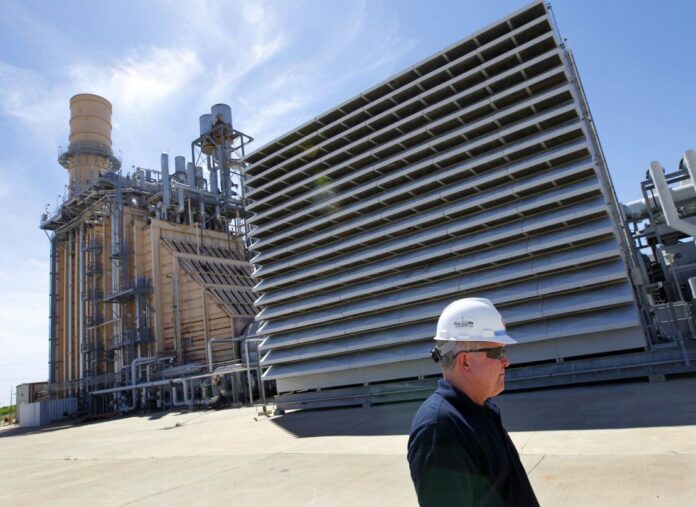EDINBURG — Sharon Wilson stood in a lecture hall at the University of Texas Rio Grande Valley Tuesday with two side-by-side photos of a local power plant on the projector. What followed were gasps from the roughly 70 students in attendance.
The well-known environmental activist is a licensed thermographic camera user. The Environmental Protection Agency, Texas Commission of Environmental Quality and the oil and gas industry all use the same equipment to measure hydrocarbon emissions, which are invisible to the naked eye.
“They use the same cameras but they try to criticize the videos that I take,” Wilson said.
Wilson has alleged that although government entities and the industry use the same equipment, they are prohibited from using memory cards to avoid a paper trail.
TCEQ has been using thermographic cameras for about a decade and reported having 20 in 2015.
“The cameras detect hydrocarbons, but they don’t identify which specific hydrocarbons are being emitted,” said Andrew Keese, a media relations specialist with TCEQ. “It’s a general tool we use to identify potential things we need to look into. … It may or may not indicate an issue. So, if something was detected, then an investigator would have to go and follow up.”
Wilson visited several power plants in the area and compared the images to the audience at UTRGV, presenting Tuesday on the effects of the oil and gas industry in Texas. The night before she was at Cine El Rey in McAllen, and the day after she presented in Port Isabel.
She said the images taken from power plants in Hidalgo County — Calpine Magic Valley, Merit Compressor Station and STEC Red Gate power plant — were “as bad as (she’s) seen anywhere.”
Representatives of the three companies did not respond to a request for comment.
Since at least 2009, the TCEQ releases a “watch list” of counties that have high concentrations of “special interest pollutants.” Hidalgo County has never been on that list.
The power plants in question are near residential areas, and according to the Center for Disease Control, chronic exposure to certain hydrocarbons correlates with respiratory illnesses, such as asthma.
Cities are not responsible for regulating power plants in their area — that’s the responsibility of TCEQ. Cities, states and the federal government are also not responsible for notifying residents of the dangers of living near a power plant.
In March 2017, McAllen denied a drilling permit to Texakoma, a Plano-based oil and gas company that was planning to set up on the city’s north side.
In light of the industry’s potential growth in the area, Stefanie Herweck of the Lower Rio Grande Valley Sierra Club invited Wilson to bring attention to the public.
“McAllen and Edinburg are built on top of an oil and gas field, so we should expect to have more drilling,” Herweck said. “We want to educate people about the potentially devastating impacts of all this development.”




